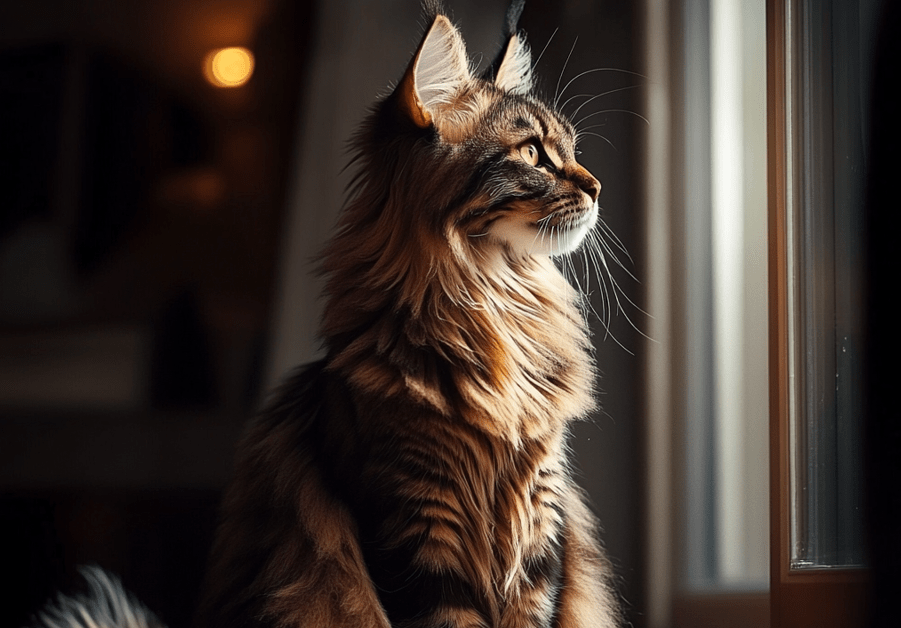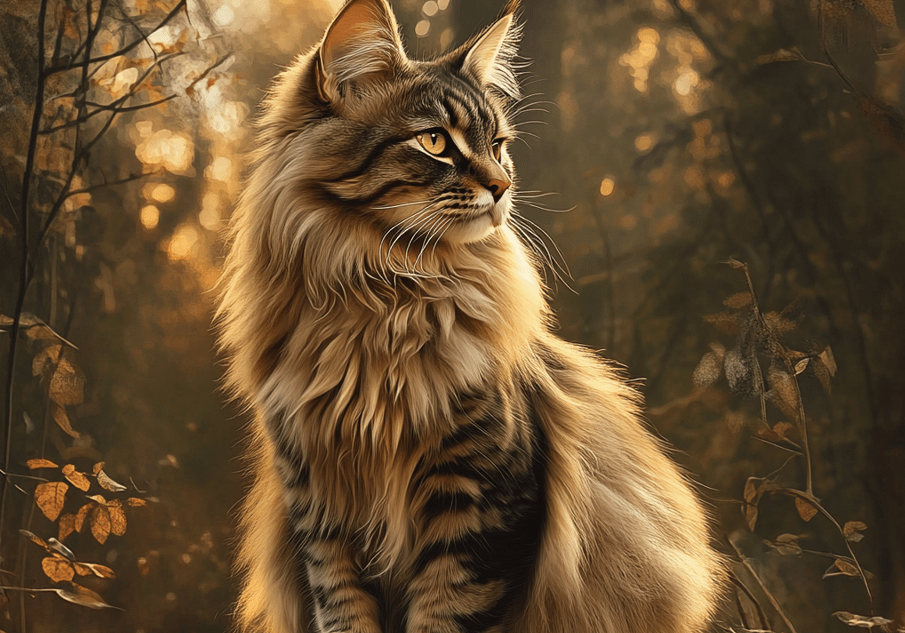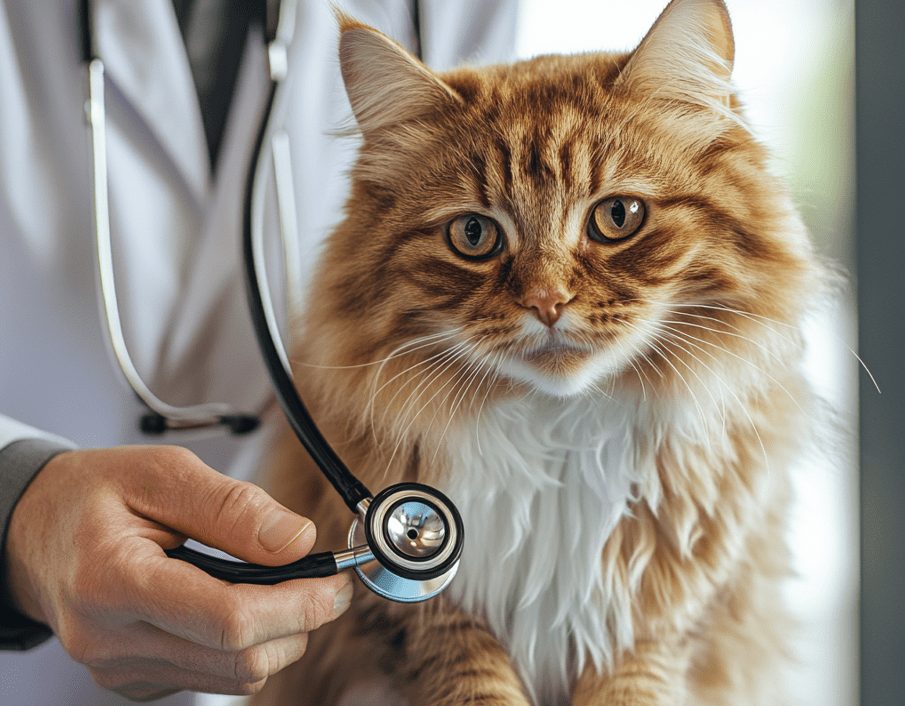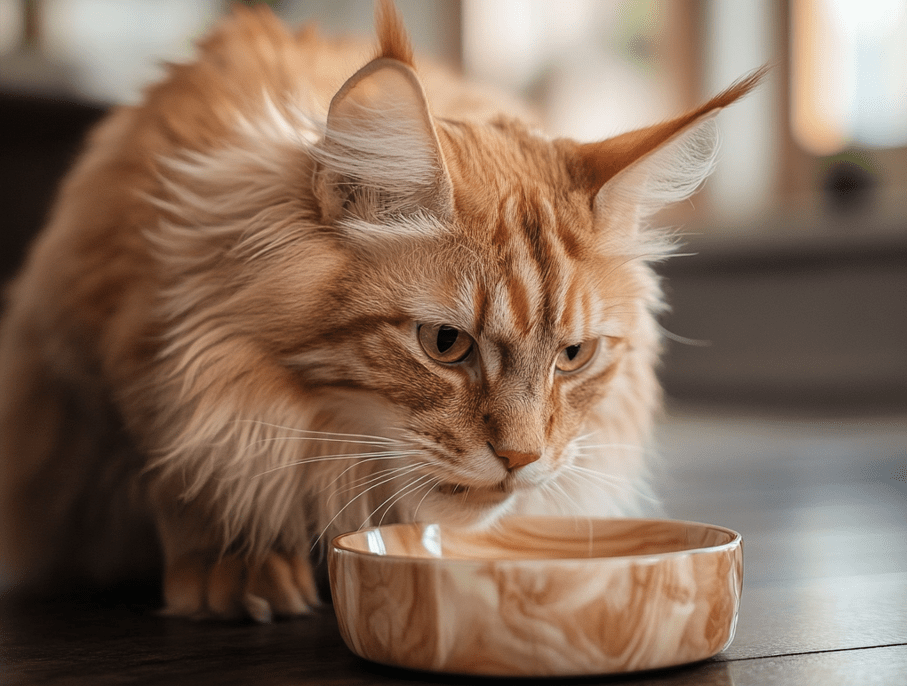
Introduction
Are you one of the lucky individuals who possess a Maine Coon since you aim to select the optimum food choices for Maine Coons? Natural dietary requirements of these giant felines originate from their size and their energetic lifestyle and possibly an inherited genetic basis. Choosing food for maine coons among many options proves challenging to most consumers. The following guide provides you with help in selecting the appropriate cat food from the multiple options by focusing on Maine Coon nutritional needs.
All major aspects related to Maine Coon dietary needs are explained in this extensive informational piece, which also explains how to analyze food component breakdowns. The guide explains eating problems that cats face while evaluating the benefits and drawbacks of liquids versus solids and teaches basic rules to keep diets in shape. The information in this guide will enable you to make educated choices which guarantee the maximum growth of your Maine Coon. Maine Coon growth stages depending on whether the cat is a kitten or senior.
Understanding the Unique Nutritional Needs of Maine Coons
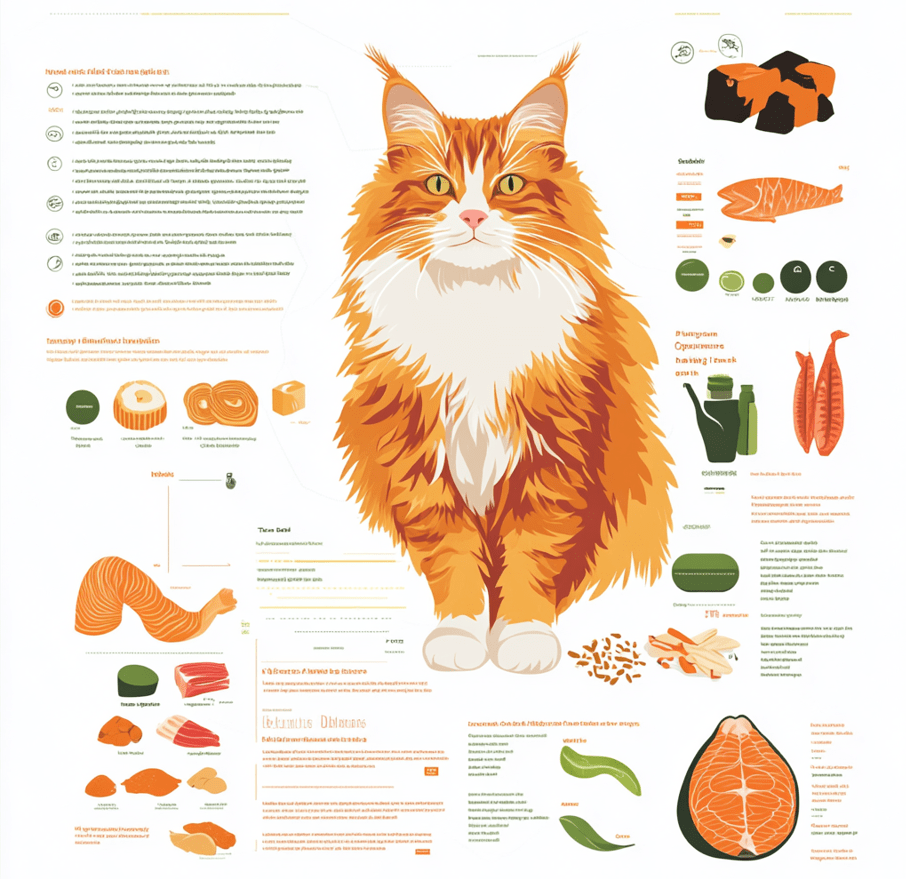
Maine Coons possess both big body dimensions and active personality traits. Maine Coons need special food, which will support their special physical makeup and their activity needs. Many owners wonder when does a Maine Coon stop growing, as these cats continue to develop well beyond the typical age of other breeds. The slow metabolic rate of Maine Coons makes them more susceptible to gaining weight unless owners handle their food consumption effectively. The muscular body type of Maine Coons needs sufficient protein to develop and preserve their lean muscle tissue. Cat owners need to select food products rich in protein content because of its essential role in their diet.
Maine Coon nutritional requirements should be evaluated based on both physical age and exercise intensity. The dietary needs of Maine Coons change between their kitten stages and adult life, A six-month-old Maine Coon, for example, requires food that supports rapid growth and energy levels and seniors need special diets for body aging support. Proper nutrition helps Maine Coons manage risks associated with hip dysplasia and heart disease as well as other possible health complications. When do Maine Coon cats stop growing? Typically, they reach full physical maturity around 3 to 5 years of age, depending on their individual growth rate. Purchasing appropriate cat food becomes simpler by comprehending the distinctive nutritional requirements of your Maine Coon.
Key Considerations When Choosing Cat Food for Maine Coons
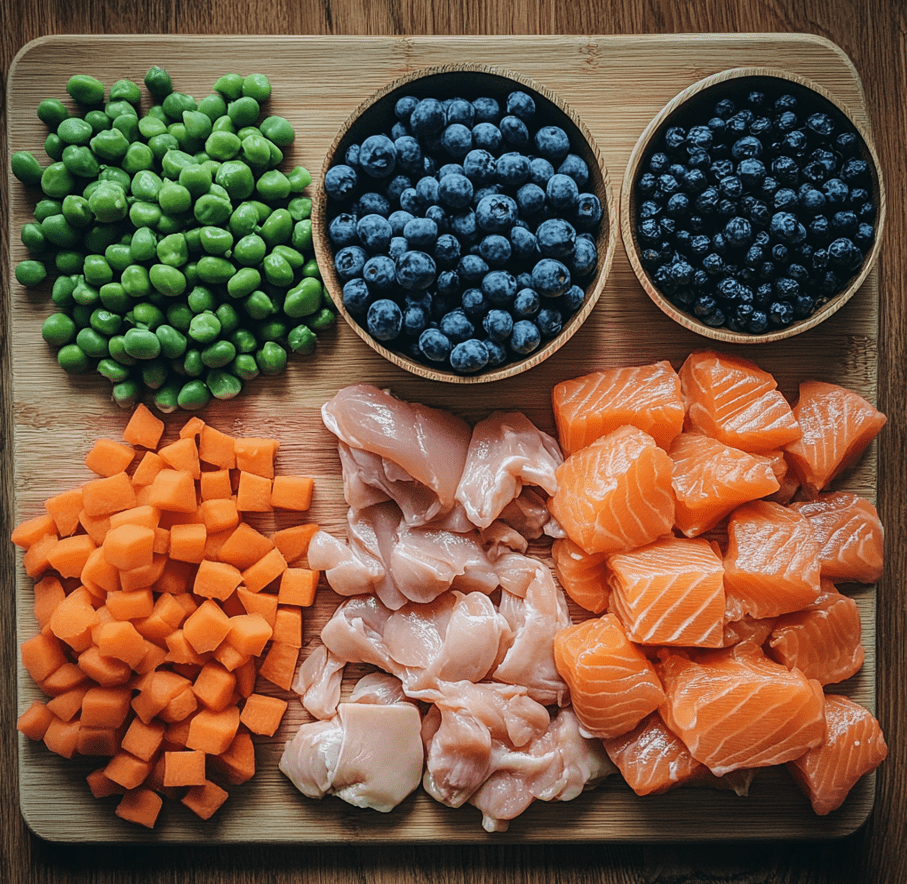
Selection of cat food for Maine Coons requires multiple essential elements for consideration. Your search for cat food should begin with products labeled as “complete and balanced” from member companies of UK Pet Food. Good nutritional requirements for cats must be present in all foods that bear this label or certification.
The selection of high-quality ingredients should be marked as another essential aspect when choosing food for your Maine Coon. Check the ingredient list of cat food for high-quality animal sources such as chicken or salmon that rank at the beginning. Choose cat food that does not have crude fillers or by-products because they lack important nutritional value. Maine Coons need dietary omega-3 fatty acids since they support their skin and coat well-being. Your search should lead you to cat food containing fish oil since it acts as a natural source of essential fatty acids.
Ingredients to Look for in Cat Food for Maine Coons for a Healthy Diet
The best way to identify proper nutrition for your Maine Coon involves recognizing specific ingredients that should be present in their food. Animal protein must serve as the main ingredient in cat food because it provides excellent nutritional value. Your Maine Coon needs protein to sustain its muscles and to have a healthy general condition. Maine Coons need nutritious food containing a proper ratio between fats and carbohydrates. Cat food with omega-3 fatty acids together with healthy fats serves two functions: protection of joints and maintenance of a shiny coat. Maine Coons should receive their carbohydrates from grain products and vegetables yet avoid receiving fillers such as wheat or corn.
Maine Coons also benefit from the inclusion of certain vitamins and minerals in their diet. Heart health functions best when Maine Coons get taurine, which serves as an essential amino acid. Maine Coons experience heart disease frequently, so cat owners need to select food containing sufficient taurine levels. The diet of your Maine Coon should include antioxidants that support immune health together with glucosamine, which improves joint wellness. Selecting cat food with important nutrients will guarantee Maine Coons get proper nutrition.
Common Dietary Issues and How to Address Them in Maine Coons
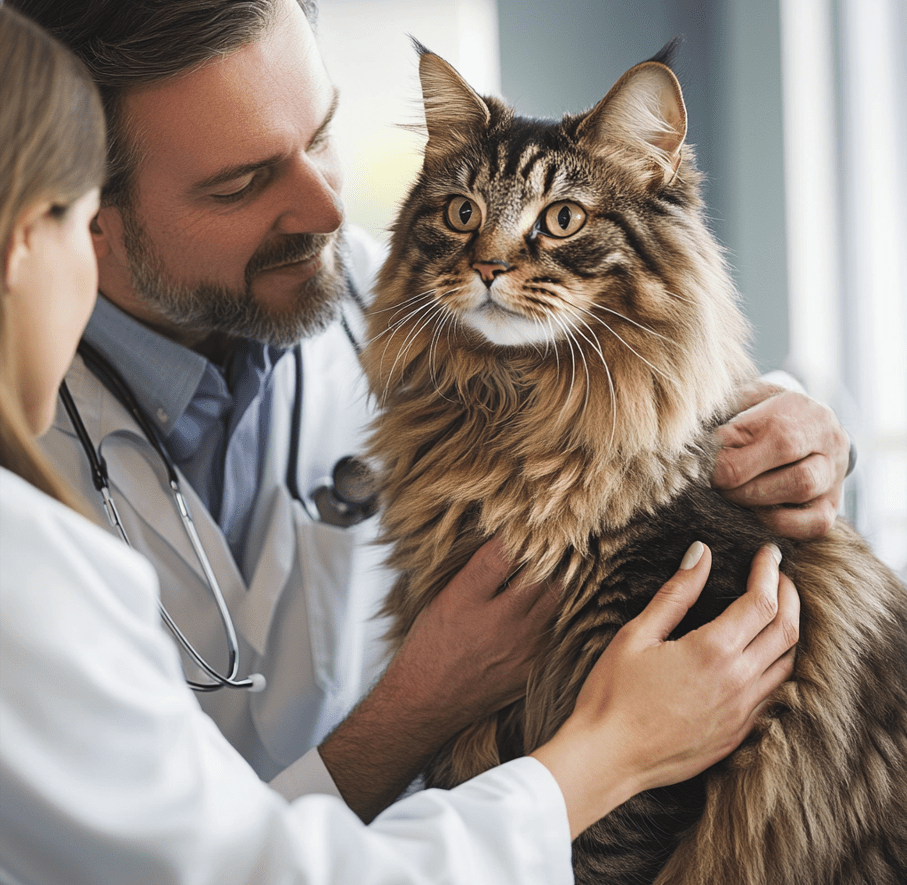
Maine Coons share the same risks as other cats regarding dietary problems, which need specific medical care. Food allergies and intolerances represent one typical dietary problem for all cats. Your Maine Coon’s gastrointestinal problems together with skin conditions can be addressed by feeding it either a hypoallergenic cat food or a limited ingredient diet. These dietary products contain minimal ingredients to decrease the chances of inducing allergic responses.
Food-related health problems affect Maine Coons through their urinary tracts. Maine Coons are at risk of forming painful urinary crystals that could become dangerous to their lives. It is essential to select cat food products that specifically target urinary tract health to avoid such problems. Choose a cat food with pH balance and include cranberries among its ingredients, as they help protect the urinary tract.
The Best Types of Food for Maine Coons: Dry, Wet, or Raw?
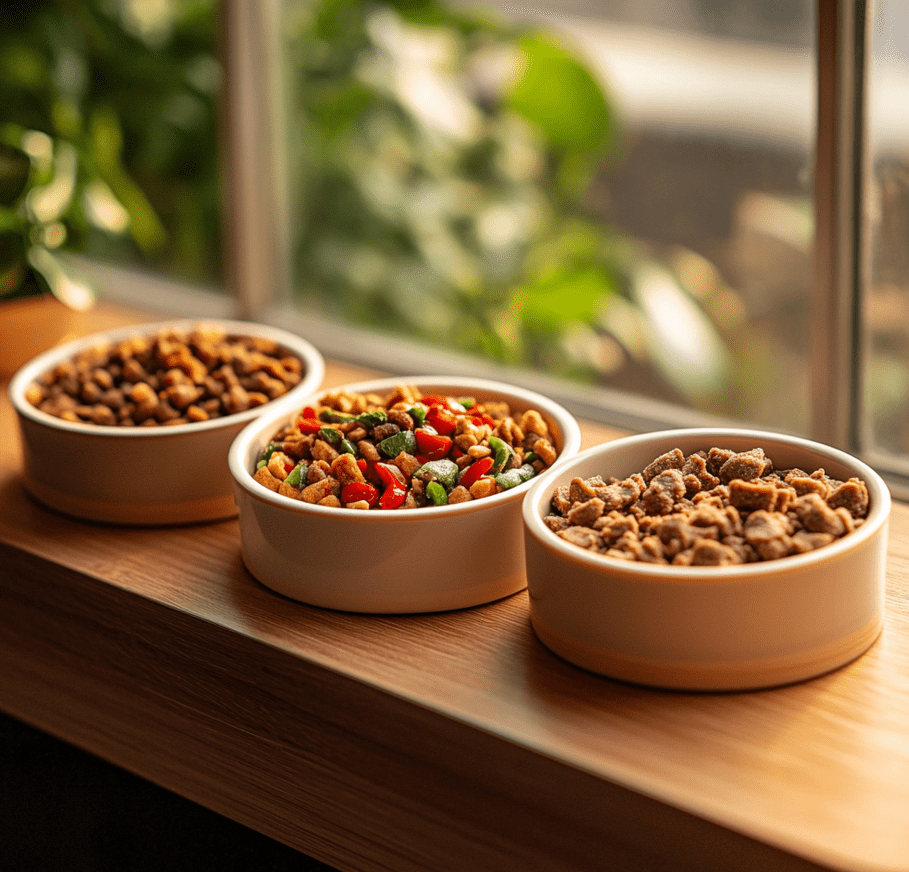
The selection process for Maine Coon food requires analyzing the advantages and disadvantages between dry food and canned food and raw food options. Dry cat food serves three important functions through its manufacturability, its storage ease, and its role in fighting plaque accumulation in teeth. The water content needed to prevent urinary tract troubles may not be present in certain dry food items. Your Maine Coon should always have access to fresh water in order to counter the risks of urinary tract issues.
Your Maine Coon benefits from the hydration characteristics of wet cat food because this food contains higher moisture levels. The elevated protein content in wet food combined with lower carbohydrate levels makes it a proper selection for Maine Coon cats. The cost of wet food remains high compared to dry food, and its edible period is reduced once the packaging is opened.
The growing trend among owners shows that raw diets serve as a natural high-protein food choice for Maine Coons. Cats eating raw foods need deliberate preparation to create nutritionally adequate and safe meals. Before selecting your Maine Coon’s dietary strategy, it is necessary to consult a veterinarian who will help you identify appropriate feeding methods.
Tips for Maintaining a Healthy Diet for Maine Coons
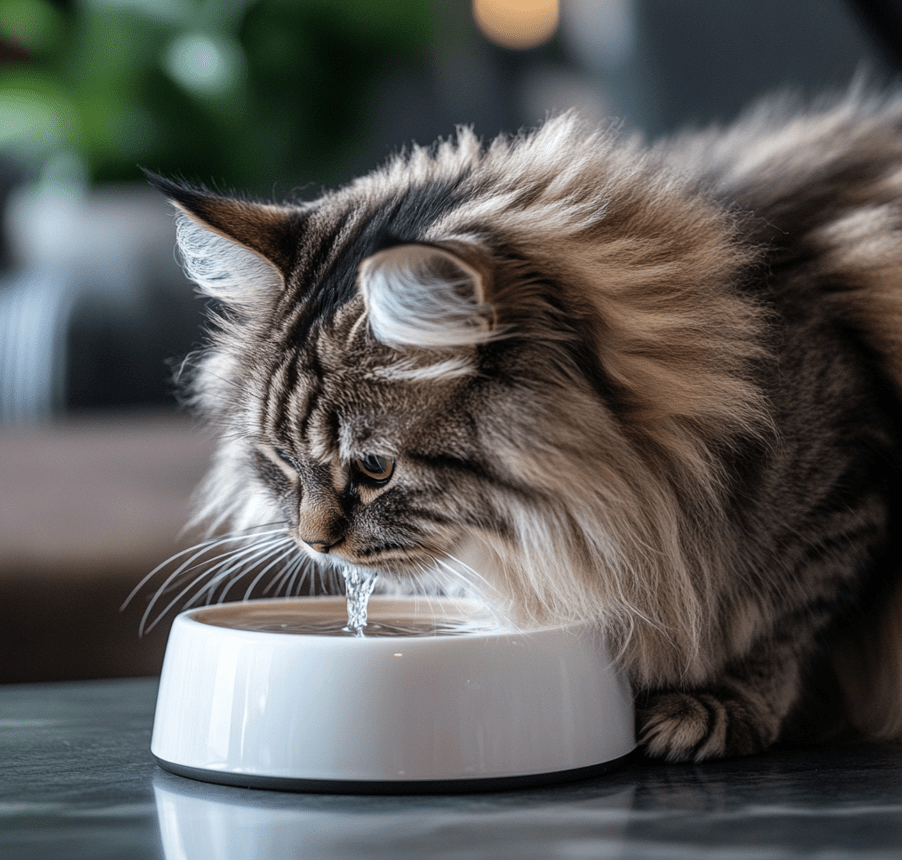
When providing nourishment to your Maine Coon, select suitable food along with these additional steps, which ensure proper dietary wellness:
The largest breed of domesticated cats—Maine Coons—need proper nutritional combinations of protein and fat as part of their diet since they remain active throughout. The essential nutrients and excellent physical and health condition of your Maine Coon will be guaranteed through feeding them with Exclusive Lyster Care dry food from Husse’s range. Proper amounts of Omega-3 and Omega-6 fatty acids found in Exclusive Lyster Care dry food will help your cat maintain healthful and conditioned hair during both adulthood and aging stages. The vast dimensions of domesticated Maine Coons make them prone to hip dysplasia, so senior cat populations and adults may obtain benefits from chondroitin and glucosamine supplements. The joint system of a person gains support from the Husse drugs Artro and Artro Plus.
A daily routine for Maine Coons involves providing them with fresh water placed in clean containers since this facilitates their water consumption although they experience issues with drinking water. Proper portion management of Maine Coon meals should occur because these cats naturally gain weight at varying rates but need to maintain proper weight for healthy living. Regular veterinary examinations must be performed on your Maine Coon to enable vets to evaluate their health condition and dietary needs.
Conclusion
The process of giving your Maine Coon the best nutrition starts with learning what they require and selecting appropriate food choices. The well-being of Maine Coons depends on every food-related decision, beginning with selecting high-quality, protein-rich foods containing essential nutrients as well as resolving allergies or urinary problems. The choice between dry food or wet food or a combination matters only in terms of components which help build strong muscles and healthy joints as well as maintain a shiny coat.
Age, alongside normal daily physical activity together with particular food tastes, determines which food plan will work best for your dog. Inspection of serving sizes combined with techniques to increase fluid consumption and interactive mealtime practices will help improve your pet’s general health condition. Your Maine Coon’s health depends on scheduled visits to the veterinarian, who addresses issues that lead to their better well-being. Since dedicating time to your Maine Coon’s nutrition means you give them nourishment that ultimately creates a long and joyful life filled with excellent health. Through proper feeding, your Maine Coon will flourish and show happiness while demonstrating the excellent care you provide them.

